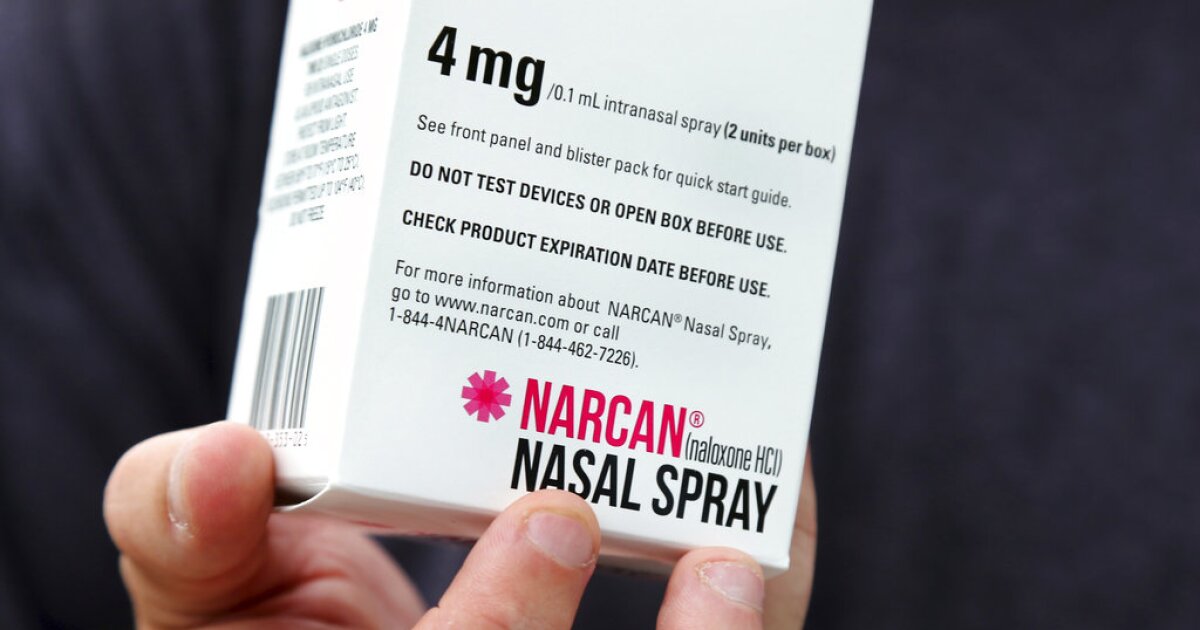

Some local governments and nonprofit organizations are using vending machines to distribute Narcan, a medication that reverses opioid overdoses, in the hope of reducing drug overdose deaths.
Vending machines with the lifesaving medication are being placed in cities across the country, including Philadelphia and Winston-Salem, North Carolina, at detention centers, malls, college campuses, and other public areas to hand out to community members to use in emergencies.
TRIPLE VIRUS THREAT: RSV, FLU, AND COVID-19 PUSH CHILDREN’S HOSPITALS TO LIMITS
“These organizations, they may be closed at five but with a machine that could be outdoors or placed in a variety of places,” said Ashley Hubler, chief marketing officer for the Wittern Group, a vending machine supplier based in Iowa. “Now the end users can access the machine regardless if it’s four o’clock during business hours or two o’clock in the morning [to] access the supplies when they need them.”
“There’s times that these users — there may be, like, a stigma associated with getting these types of supplies, so they don’t want to interact with someone face to face. And so that’s another way that our machines kind of alleviate that concern or that hesitancy,” she said.
The company, which has been selling traditional vending machines for food and drinks for 90 years, said it wasn’t until last year that requests for specialized machines to hold Narcan really took off, attributing it largely to federal grant funding that was made available to address the opioid crisis.
Last year, drug overdose deaths surpassed 108,000, a record high, with 75% involving at least one opioid, fueled largely by the potent synthetic opioid fentanyl.
Some local governments have strategically placed the vending machines near at-risk populations — for example, at jails — since research suggests that recently incarcerated individuals are up to 40 times more likely to die of an opioid overdose than the average person.
At the Forsyth County Law Enforcement Detention Center in Winston-Salem, a vending machine was set up in the lobby to offer Narcan kits to the public for free, a space most people pass when they are released from the jail.
“We actually had an EMS call recently where there was an overdose happening about a block or two down the street from our jail,” said Amanda Clark, a lead for the Forsyth Regional Opioid and Substance Use Team at the Forsyth County Department of Public Health. “The person who called 911 remembered that there was that Narcan machine at the jail. And so after they called 911, they actually ran to the jail to get some Narcan from the machine while they were waiting for first responders to get there. And the person was able to be revived, and by the time the paramedics got there, they were sitting up and talking and doing fine.”
Clark estimates that roughly 600 Narcan kits have been dispensed through the vending machine since it was placed at the detention center this August, more than she handed out herself all of last year.
Expanding the availability of the medication in the community has eased some of the burden for first responders, all of whom carry Narcan, Clark added.
“If more people in the public have Narcan, then if there is an overdose or a call like that, then it eases some of the burden on first responders with their response times … if they know that there’s already someone there who can administer Narcan,” said Clark.
Similar initiatives have taken off in Washington, Michigan, Indiana, and Nevada, among other states. It follows the Food and Drug Administration loosening restrictions on opioid overdose antidotes, including Narcan, in 2019 to increase its availability.
Vending machines with Narcan have been set up in other cities. The Central Washington Recovery Coalition, a nonprofit organization that helps drug users, installed three vending machines around its area, including in Wenatchee and Moses Lake.
CLICK HERE TO READ MORE FROM THE WASHINGTON EXAMINER
The Center for Behavioral Health and Justice at Wayne State University also purchased 15 vending machines to stock with naloxone kits using grant funds from the Centers for Disease Control and Prevention’s Overdose Data to Action initiative that it placed at county jails and community organizations across several cities last year.






